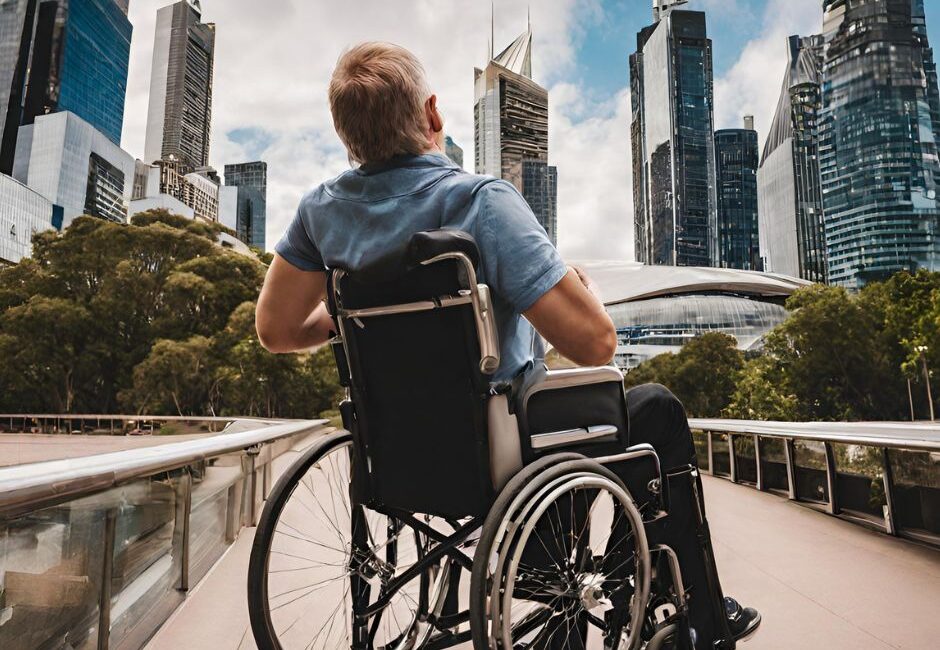
Travelling is a transformative experience for all of us. But what about travellers with a disability? Of course, it can present unique challenges.
Sadly, many destinations do not provide adequate accessibility, services, or support as required for persons with disability. Thus, you must plan carefully and consider all your limitations before embarking on a journey.
Whether your disability is physical, sensory, psychiatric, neurological, or cognitive, this guide aims to empower you with the necessary information to ensure a safe and enjoyable journey.
What are the essential Pre-Travel preparations for those with a disability?
1. Get Medical Advice

Before embarking on your journey, whether in Australia or any part of the world, schedule a visit with your doctor. Ensure you receive the necessary vaccinations and a thorough health check.
If a medical professional advises against travel, heed their guidance. Discuss how you’ll manage your health abroad and identify essential health checks and vaccinations.
2. Research Medical Care Overseas

You should do thorough research on the availability of specialised medical care and medications at the place you are travelling to. Some locations may lack the required medical services, and specialised care might be more expensive in other places.
It would be a good idea to check the website and familiarise yourself with local medical facilities using the health section of the travel advisory for your destination country.
If you are travelling within Australia, like Sydney or Queensland, you need not worry as you might be aware of the medical facilities.
3. Get Travel Insurance

Securing travel insurance is crucial for travellers. The Australian Government will not cover medical expenses if issues arise.
You should declare your disability to your insurer to ensure proper coverage. Check policy details, ensuring it covers essential aspects like replacing medical devices, medical evacuation costs, and local medical services.
Accessible Air and Sea Travel:
1. Research Your Provider

Choose airlines or cruise ships that cater to your needs. Inquire about adjustments and accommodations they can provide. Also, check whether they have catered to any other passengers with your condition.
Understand any restrictions on equipment like wheelchairs during flights and preparations needed for boarding.
2. Equipment and Service Animals

Coordinate with airlines or cruise ships regarding permissible equipment on board. Will they allow wheelchair access? Do they assist while boarding? These are a few of the things you should consider.
If you have any electronic assistance device, carry adaptors for charging your devices, considering varying electrical outlets.
If you have a service animal, inquire about onboard exemptions and ensure compliance with travel requirements.
Accommodations and Activities
1. Research Destinations

Thoroughly research your destination’s accessibility. Check whether they offer accessible travel.
Utilise online resources on accessible tourism, including eBooks, guides, and experiences shared by other travellers. Explore resources from reputable platforms like Lonely Planet, CHOICE, and the European Network for Accessible Tourism.
2. Hotels, Tours, and Activities

Research local hotels for accessible facilities. Communicate with your travel agent, airline, cruise ship, or tour operator about disability access and services at your destination.
Look for tour operators offering accessible options and consider activities that suit your needs.
Getting Around with a Disability:
1. Understand Local Infrastructure

Infrastructure can be challenging in many countries, such as poorly paved paths, hazards, and inaccessible public transport for disabled travellers.
You should learn about specific challenges related to your destination country and whether you can manage with your disability.
2. Potential Discrimination
Be aware that attitudes towards the disabled may differ, and you may face discrimination in some destinations.
Understand the local social stigma and legal protections related to disabilities.
Australian Government Disability Services Support
The Australian government’s TravelSECURE advice and the Aviation White Paper are essential resources for travellers with disabilities, addressing systemic discrimination in the transport sector and providing tailored advice.
Travelling is one of the human rights. While the Australian Government can provide emergency consular assistance, lists of local English-speaking medical professionals, and legal contacts, there are limitations.
They cannot intervene in accessing facilities, provide specific disability services advice, offer medical advice, guarantee health and safety, or assist if you violate local laws.
Final Tips Before You Go
Consult Your Doctor: Obtain advice on vaccinations, necessary medications, and health precautions to be taken at the airport and inside the aircraft.
Secure Travel Insurance: Ensure comprehensive coverage for your disability and specific needs.
Check Equipment Legality: Confirm your ability to take required medical equipment and medications.
Service Animals: If applicable, inquire about travel requirements with service animals.
Communicate with Companions: Discuss any physical or emotional support you may need when you travel outside Australia.
Inform Your Travel Provider: Share details about your disability for tailored assistance and insights into your destination.
Conclusion
Whether travelling within Australia or outside, careful planning is required to ensure a smoother, more enjoyable travel experience. By addressing potential challenges that you are likely to face, you can have an enjoybale vacation with lasting memories.
The Funtastic Tour Companyis here to assist you with all your travel needs. Though we cater exclusively for the over 50s travellers in Australia, we are also open to assisting persons with disability. While our current offerings suit guests with wheelie walkers, we recognise the importance of accessibility and comfort.







